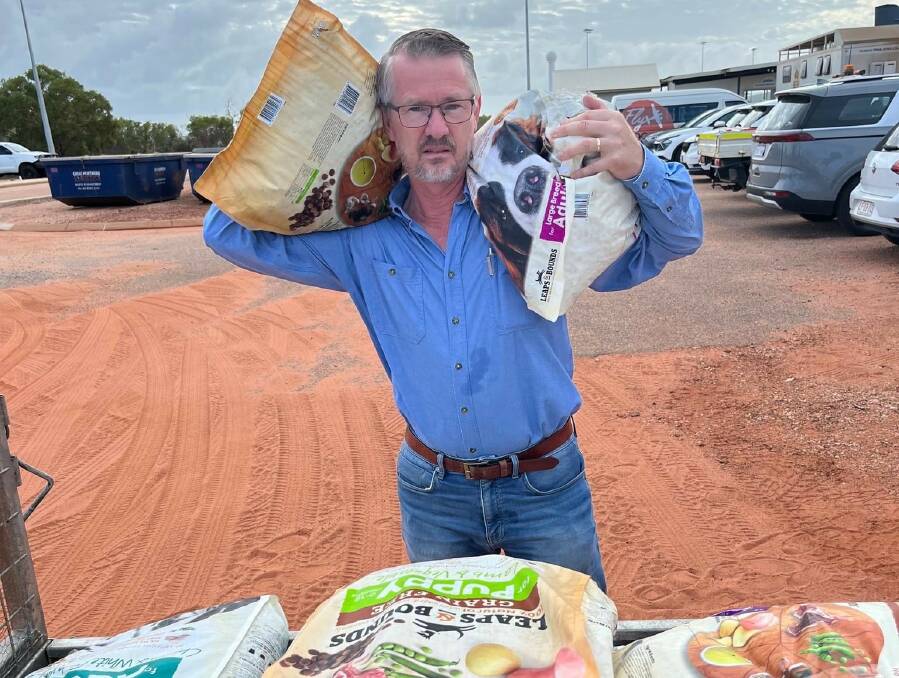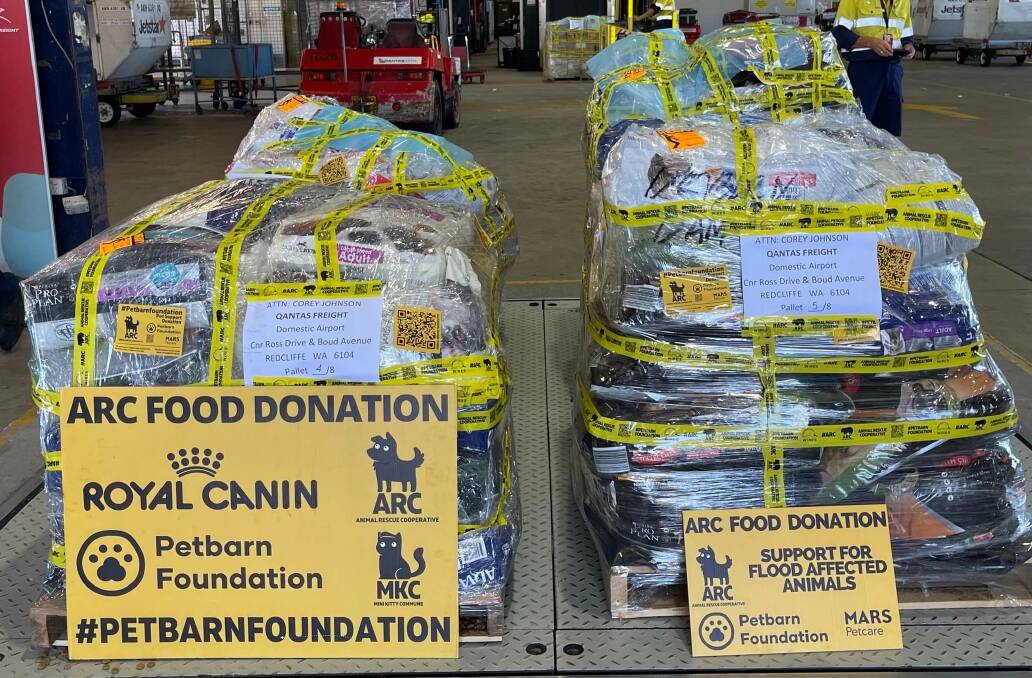
IMPORTANT first aid equipment and essential goods are not making their way into the Fitzroy Crossing flood-impacted zone due to a lack of transportation - creating a logistical nightmare for charities.
Subscribe now for unlimited access to all our agricultural news
across the nation
or signup to continue reading
Pallets of bedding, electrical goods and animal food have been left stranded in Broome for close to a week, with no timeframe of when these goods will be delivered to people in need.
Foundation for Indigenous Sustainable Health (FISH) chief executive officer Mark Anderson currently has 35 pallets in Broome "sitting here ready to go" but has no way of transporting them to Fitzroy Crossing.
The charity has started conversations with Qantas Freight to fly in the goods, which is long-winded and expensive.
- Subscribers have access to download our free app today from the App Store or Google Play
"We've been working for five days trying to get nine pallets flown out of Perth into Broome because there's been no dog food, pet food or chicken food for a week," Mr Anderson said.
"And we've had it sitting in Perth, trying to get it up here."
Since the Australian Defence Force (ADF) has arrived in Broome, charity managers can no longer secure a seat on the only plane going into Fitzroy Crossing - as the seats have been given to government officials and ADF personnel.
This has left charities such as FISH trying to find someone to fly their own private flights into Fitzroy Crossing to help those on the ground.

"We were able to fly in and out each morning distributing the support, we've now lost our seat on the plane, because it's everyone else that's going in," Mr Anderson said.
"I've just been informed that for the next three days, there's no seats available to get in."
However, Mr Anderson wasn't disheartened by the delays, stating it was "just the reality" of any emergency situation.
To combat the closed roads into Fitzroy Crossing, Main Roads WA made available permits for triple road trains to allow larger trucks to move freight via Port Augusta, through South Australia and the Northern Territory to the north of WA.
This has enabled essential supplies to reach flood-affected and isolated areas.
The co-ordination between various State governments and the trucking industry has been praised as "phenomenal" by Curtin University supply chain expert, associate professor Elizabeth Jackson, as both parties navigate immediate response to the Kimberley flooding emergency.
As the flood situation worsened last week, both industry and government banned together to create a new route through two States to give essential products to those in need.
"What is so admirable about what the trucking companies are doing is, we mustn't forget the situation that they're in at present," Dr Jackson said.
Trucking companies are facing the "most incredible input prices" for diesel and they are also "desperately short" of drivers as a national industry.
Dr Jackson said it gave her goosebumps to think about how wonderful it was for an entire industry to offer support and move so quickly to help those in need.
"With the size of our transport and supply chain industries these days to make such agile and nimble changes so quickly, it is just phenomenal," she said.
"It's a real credit to the collaboration between industry and government on this occasion, and we need to repeat this in the future."
In previous disasters across Australia, experts and communities have criticised government response times and the lack of communication with involved industries, in what is usually a fast-moving situation.
"I think something that the general public are sick of these days is waiting for responses," Dr Jackson said.
"The government, the various State and Federal governments do catch a fair bit of flack for not liaising with the industry.
READ MORE:
"If the past three years has taught us anything, it's how slow responses can be with paperwork and compliance and when we have to move quickly, it can be a real inconvenience."
It is predicted to be an "enormous endeavour" to get Fitzroy Crossing's roads usable again, as they need to be sturdy enough to handle heavy trucks for goods and livestock exports - so the existing causeways aren't suitable.
Kimberley Pilbara's Cattlemen's Association (KPCA) business development officer Lauren Bell said she was concerned about the long-term effect not having a direct route to port would have on pastoralists.
"Pastoralists rely very heavily on that bridge to get their cattle to markets, the port or the meat works - so if that doesn't get rectified, they'll have limited options with where they can send their cattle and limited options to get supplies in as well," Ms Bell said.
She also urged motorists to be aware when the roads start opening, as there will be a higher rate of wandering misplaced stock.
"We really want people to be careful on the roads, obviously, for their own sake, but also to minimise any more lost cattle," Ms Bell said.

